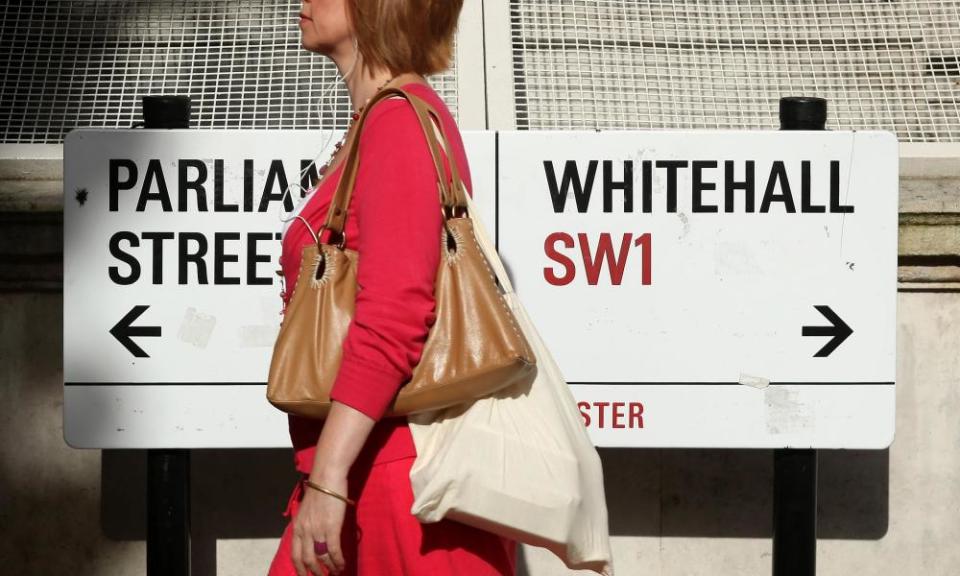Brexit crisis command centre starts hiring civilians

The government has started to recruit civilians to work in an emergency command and control centre being set up to make sure Britain runs smoothly in the aftermath of a potential no-deal Brexit.
Briefing notes issued by the Department for Environment, Food and Rural Affairs (Defra) to recruitment agencies state the EU Exit Emergencies Centre (EUXE) could stay open “potentially for two years”.
The chief executive of the civil service, John Manzoni, has already said it is looking to second 5,000 civil servants, with volunteers sought in non-Brexit departments including the Department for Education and the Department for International Development.
But with 50 days to go to Brexit, the civil service is widening the net to recruit external contractors to help with what appears to be a military-style “Gold command”, which will operate out of offices close to Westminster.
According to briefing notes seen by the Guardian, the government is looking for “unflappable” individuals to help brief ministers and the Cabinet Office on any unfolding emergencies in a no-deal scenario.
Candidates are being offered between £300 and £400 a day and must be prepared to start by the end of this month.
They have been told the emergency centre could be based at Marsham Street, where several government offices, including the Home Office, are based, and which is a short walk from the Palace of Westminster. The other potential site is Nobel House in Smith Square, also close to Westminster.
Defra is recruiting for at least three different roles: briefing emergency centre officers, liaison emergency centre officers and situation emergency centre officers.
In what appears to be a military-style setup, the emergency control centre will have a team of officers producing briefing notes for ministers “at pace” and checking the “battle rhythm” for emerging urgent policy changes.
Whitehall departments were told in December to ramp up their no-deal planning and since then, leaks have emerged from Defra of plans to deal with “putrefying stockpiles” of uncollected waste and of issues in relation to livestock caught in potential gridlock in Kent.
The department will also have to deal with water quality issues that may emerge if there is a shortage of purification chemicals and will have to liaise with local resilience groups on any civil reaction to shortages in the shops.
The recruits for EUXE must be able to “see the emergency trends with little or no information and act appropriately at pace”.
They must also be “a horizon scanner – someone who is looking up and out into the working environment to spot early indications of approaching issues or emergencies”.
The situation officers “must be unflappable” with the “ability to work in an area of high public and media interest” and have the “ability to make sound, logical judgments based on possibly incomplete or imperfect information”.
Applicants are being recruited on a six-month contract with an option for three-month extensions up to two years.
“The EUXE centre is designed to be a temporary measure and the authority expects its lifetime to last about six months, with a potential for further extensions in three-month periods, should an ongoing need arise, potentially up to two years,” said the job description.
A Defra spokesperson said: “As you’d expect, Defra and departments across government continue to work hard preparing for the UK’s exit from the EU. It’s the job of a responsible government to ensure we’re prepared for all scenarios, and we continue to recruit and prioritise our resources accordingly.”

 Yahoo Finance
Yahoo Finance 